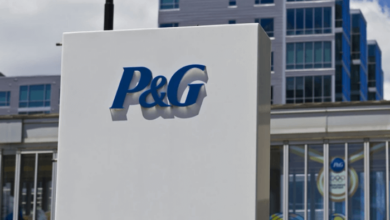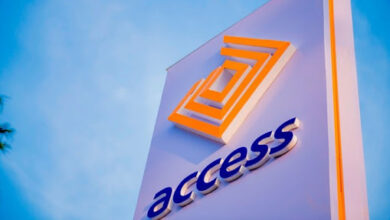Nigerian Roads: To Toll or Not to Toll?
The choice before Nigeria is between a national network of toll roads and a national network of craters


Less than 25% of roads in Nigeria are paved. Emulating countries like Malaysia where toll roads are widespread could be a solution to Nigeria’s dilapidated roads
According to rhinocarhire.com, a global car rental company, the majority of expressways and highways in Malaysia are tolled, so it’s difficult not to encounter a toll road if you travel within the country. But it’s pleasurable to drive on the roads as they are in very good condition. …Malaysia’s expressway network is considered the best in Asia, after Japan’s and China’s. It has 31 toll roads out of which the 772 km North–South Expressway is the longest.
The Federal Government of Nigeria recently announced its plan to reintroduce tolls on major roads. Building and maintaining roads through user fees is not a new idea. Travelers using the Susan-Babylon highway under the regime of Ashurbanipal, King of the Neo-Assyrian Empire, paid tolls some 2,700 years ago. The world has moved on from the debate on whether we should have toll roads or not to how to make them fairer and more efficient e.g. through digitalization of toll collection for seamless traffic.
According to rhinocarhire.com, a global car rental company, the majority of expressways and highways in Malaysia are tolled, so it’s difficult not to encounter a toll road if you travel within the country. But it’s pleasurable to drive on the roads as they are in very good condition. Tolls are also lower in Malaysia compared to other countries, including Asian ones.
Toll roads provide revenue to expand infrastructure faster, keep roads in good condition, boost productivity by reducing traffic congestion etc. By making the economy more productive, tolling roads boosts investment and creates jobs. They also can attract a considerable inflow of foreign exchange into a country.
Here is how the tolling system works in some countries:
Toll Roads in Singapore
Singapore operates an Electronic Road Pricing (ERP) system, an electronic toll collection system adopted in 1998 to manage traffic. The system uses “open road tolling” – vehicles do not stop or slow down to pay tolls. So, how is toll collected in Singapore? Simple! When you apply for a plate number, you are also given an electronic tag linked to this plate number and a bank card. There are over 93 ERP “gantries” in the country, installed along tolled roads – they automatically read every car’s electronic tag and automatically charge for the journey. You pay more if you decide to drive your car rather than join public transport during peak periods. Singapore, a country of 5.8 million people which gained Independence in 1965, is the first country to adopt the Electronic Road Pricing system (its founding leader, the late Lee Kuan Yew, said during a visit to Nigeria in 1966 that Nigeria was the only African country at the same level of economic development as Singapore).




Toll Roads in India
According to its Ministry of Road Transport and Highways, India has the second largest network of roads in the world, second only to USA. This road network carries almost 90% of the country’s passenger traffic and 65% of freight. The government spends over $ 8 billion on roads every year. But the Indian government courts the private sector to invest in building and maintaining roads, knowing that its own resources are inadequate to maintain roads and build new ones. The incentives India piles on these investors include capital grants, 100% tax exemption for 10 years, duty-free import of equipment, bearing cost of feasibility study etc. There has been an influx of indigenous and foreign private sector investors in roads in India including Isolux Corsán, Brookfield Funds, Morgan Stanley Infrastructure etc. They are all regulated by the National Highway Authority of India. India allows 100% foreign ownership of toll roads; since 2000 till date, $25.05 billion of foreign funds have gone into building roads in India. The Federal Government of Nigeria spends only about $400million per annum on roads.


Toll Roads Malaysia
Malaysia runs both open and closed toll systems. For the closed-toll system, every car enters at one point and drives out at the same point, paying a fixed price. This is usually used for toll roads covering short distances, such as our own Lekki-Epe Expressway. Under open toll systems, drivers enter at the same point but pay different prices depending on the distance traveled before they exit the usually very lengthy toll road.
Malaysia’s expressway network is considered the best in Asia, after Japan’s and China’s. It has 31 toll roads out of which the 772 km North–South Expressway is the longest. The Malaysian Highway Authority (MHA) regulates the development and management of toll roads in Malaysia. PLUS Expressway Berhad, the eighth largest listed toll expressway operator in the world, is Malaysia’s biggest highway concessionaire and the biggest in Asia.
According to McKinsey, the global consulting firm, Nigeria needs to spend N31 billion per annum for the next ten years to build the infrastructure required for the economy to function efficiently. But Nigeria now spends about 50% of its revenue on servicing loans and the country also collects half of what other African countries collect in taxes (relative to GDP).
The Nigerian Government simply lacks the funds it needs to invest in improving the country’s infrastructure. The choice is hence between a national network of toll roads and a national network of craters and an increasingly balkanized and rapidly crumbling economy.


Toll Roads Indonesia
Connecting Indonesian cities, with thousands of volcanic islands, means the government must invest heavily in transport infrastructure. The volume of the financing needed makes it impossible for the government to shoulder this responsibility alone. Indonesia plans to develop 4,479.33 kilometers of toll roads by 2030 in addition to the 1,500 km of private tolled roads that are to be completed in 2024 to support connectivity. As part of his $400bn transformation plan, Indonesia’s president, Joko Widodo, plans to attract over $70bn private investment in building roads and bridges to help connect the most strung-out country on the planet. The Indonesian Toll Road Authority regulates investment in toll roads in the country.


Toll Roads in Africa
Until recently, many African countries have relied solely on government funds to build critical infrastructure. This is grossly insufficient, a fact evident in the slum-like conditions of even the most exclusive parts of Lagos, Nigeria’s commercial capital. A World Bank report estimated that Sub-Saharan Africa attracted only $ 1.4 billion (2%) of the $ 61 billion invested in building toll roads in developing countries across Africa, Asia and Latin America between 1990 and 1999. Morocco, Mozambique, South Africa and Senegal are pushing ahead with toll roads as a way to solve the problems of congestion, infrastructure financing, dwindling revenue etc. (South Africa has attracted more than half of private investment in roads).
Below are some toll roads in Africa.














Forget it! Nigeria is a failed state.